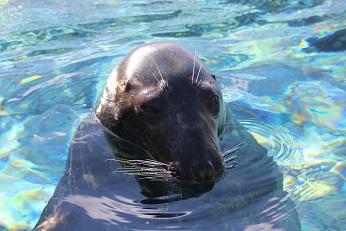Background and aim

Pinnipeds are predatory, amphibious mammals, whose natural behaviours are strongly shaped by the marine environment in which they live. The environment for captive seals usually includes extensive human contact, predictable feeding routines and lack of foraging opportunities. Even though feeding/foraging behaviour is considered one of the main behavioural needs of seals, feeding time in captivity usually is limited which leads to captive animals engaging less in feeding/foraging behaviours than their wild counterparts. Even a big enclosure quickly becomes small for a foraging animal not able to perform the foraging behaviour and pattern swimming, swimming in exact routes, is considered a maladaptive behaviour of captive seals.
Most marine mammal enrichments are focused on compensating a lack of stimulation with training sessions designed to change the behaviour of the animals instead of promoting the animal’s natural foraging behaviours. Food- related environmental enrichment has been shown to reduce stereotypic swimming in Australian Sea Lions (Neophoca cinerea) as well as increasing active behaviours.
This study is aimed at enriching the captive environment of three species of seals at Kolmården Wildlife Park, by attempting to trigger the seals' foraging behaviour using live and dead fish in two different treatments, as well as testing if there is a difference in foraging response to the enrichments when using live fish or dead fish.
Responsible for this page:
Director of undergraduate studies Biology
Last updated:
